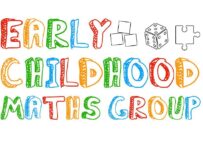Talk in mathematics

Talk is important in mathematical learning. It helps us to communicate our thinking to others and clarify our thinking for ourselves. Using mathematical words is important in concept formation. When we learn the word for ‘under’ and associate it with a range of experiences of ‘under’ then we form a firm concept of what ‘under’ means. It is important that children hear lots of maths talk in the early years of life and research shows that this makes a positive difference to their later maths learning (EIF, 2018). Gradually, they will begin to apply it to their play and everyday experiences, expressing mathematical ideas verbally or using mathematical talk in their heads. However, developing mathematical talk is so much more than learning mathematical vocabulary. For example, developing maths talk includes providing experiences that children want to talk about.
Often, young children’s mathematical thinking will be more advanced and complex than they can express verbally. As practitioners, it is important to be playful with mathematical talk as we engage in activities with children. Children can use their own words (e.g. ‘twizzle’) as well as more mathematically recognised terms (e.g. ‘turn’). They might use gestures and move objects to supplement their talk. It is important not to put pressure on children to talk in a specific (adult) way or to repeat words without knowing their meaning. We want children to be able to make sense of what they are seeing and hearing, and to talk about it in a way that makes sense to them.
